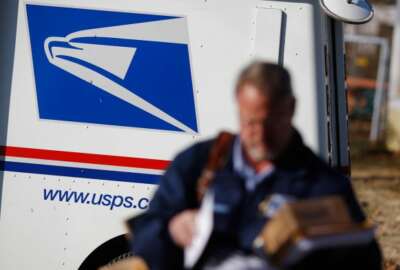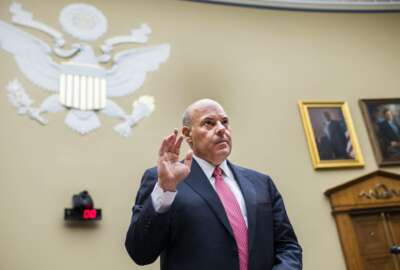

The federal judge's order requires USPS to let employees know that late and extra trips will be approved “to the maximum extent necessary to increase on-time mail...
A federal judge ordered the Postal Service to send another round of memos to area vice presidents and operations support managers letting them know that the agency — pending an extensive legal battle — has put a hold on its policy restricting late and extra trips between mail processing facilities and post offices.
The Postal Service is at the center of a dozen federal lawsuits challenging many of the operational challenges implemented by Postmaster General Louis DeJoy this summer. Rulings and preliminary injunctions in more than half those lawsuits have blocked nearly all these changes from going into effect.
The order issued Tuesday by D.C. District Court Judge Emmet Sullivan requires USPS to let employees know, in memos and stand-up meetings delivered Wednesday and Thursday, that late and extra trips will be approved “to the maximum extent necessary to increase on-time mail deliveries, particularly for election mail.”
The order stems from a lawsuit filed in August by the National Association for the Advancement of Colored People’s (NAACP) Legal Defense Fund and Public Citizen.
“To be clear, late and extra trips should be performed to the same or greater degree than they were performed prior to July 2020 when doing so would increase on-time mail deliveries,” Sullivan wrote.
The judge’s order also requires USPS to submit daily performance metrics on the number of late and extra trips, the percentage of on-time deliveries and election mail “to the maximum extent possible.”
USPS data provided to the court shows that the agency delivered 95% of incoming ballots on-time and nearly 89% of outgoing ballots on-time Tuesday. However, attorneys representing the agency warn this data only represents a subset of ballots with intelligent mail barcodes.
Election mail data released in another federal lawsuit shows that from Oct. 10-16, USPS delivered more than 95% of incoming ballots on-time and more than 96% of outgoing ballots on-time.
While the Postal Service’s legal counsel told the court to take this data with a grain of salt, the agency delivered less than 70% of first-class mail on-time nationwide Tuesday. By comparison, USPS delivered 88% of first-class mail on time on Monday and 86% of mail on time last Saturday – numbers more in-line with recent weekly first-class mail performance. Updated data shows USPS delivered nearly 84% of first-class mail on time Wednesday.
Some of the areas with the most critical staffing shortages during the COVID-19 pandemic, as mentioned by DeJoy in congressional testimony this summer, saw the lowest delivery rates. USPS facilities in Baltimore delivered less than 40% of mail on-time Tuesday. On the same day, the Philadelphia metro area received less than 43% of its mail on time, and Detroit received about 52% of its mail on time.
Justice Department attorneys representing the Postal Service told the court that the daily performance data it submitted “possesses little to no analytical value and should not be considered a reliable indicator of performance” because it doesn’t provide as much context as the weekly performance data USPS continues to send to Congress.
USPS executives have told the court that daily on-time delivery rates for days earlier in the week, for example, are typically lower than other days of the week because of the volume of mail dropped off, but not delivered, on Sundays. While USPS submitted the daily performance data to comply with the judge’s order, attorneys said the agency, under normal circumstances, wouldn’t release this information at such a granular level to the public.
“Because the service performance information is incomplete, subject to change, not representatively accurate, and potentially misleading or confusing, it would not be released under good business practices,” the agency’s legal team wrote. “With respect to the daily service performance data generally, the Postal Service considers this to be commercially sensitive in that it is not consistent with its approved service performance rules and inconsistent with the methodology used in developing the data the Postal Service disclosed publicly.”
House Oversight Committee Chairwoman Carolyn Maloney (D-N.Y.) said in a statement that the USPS data demonstrated “unacceptable delays in the delivery of first-class mail.”
“Despite his assurances, the Postmaster General has failed to fix the problems he created and cannot be relied on for the on-time delivery of Election Mail,” Maloney said.
Government Operations Subcommittee Chairman Gerry Connolly (D-Va.) said the numbers underscored the need for further congressional scrutiny.
“The latest Postal Service data confirms our fears that Postmaster General DeJoy’s reckless and unexamined changes undoubtedly resulted in service disruptions right before the election,” Connolly said.
Copyright © 2025 Federal News Network. All rights reserved. This website is not intended for users located within the European Economic Area.
Jory Heckman is a reporter at Federal News Network covering U.S. Postal Service, IRS, big data and technology issues.
Follow @jheckmanWFED


